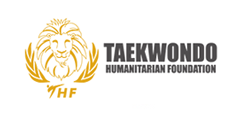UNODC article
30 July 2019 - Sport offers a safe space to youth for their personal and social development, helps them establish and maintain healthy lifestyles and achieve their full potential.
A key tool of the UNODC Youth Crime Prevention through Sports initiative is the 'Line Up, Live Up' curriculum - a sport-based life skill training programme for boys and girls, aiming to build youth's resilience to violence and crime. By participating in such programme, young people can develop essential life skills including peaceful communication, respect and self-esteem. These skills are important to their overall well-being, the development of their pro-social behaviours and their resilience to violence and crime. Such can also contribute to building inclusive and peaceful societies.
The 'Line Up, Live Up' curriculum is currently piloted in 11 countries around the globe, including in Kyrgyzstan and Tajikistan, building the capacity of sports coaches, teachers and community workers by enabling them to use sport as a tool for prevention of violence and crime among youth.
One of the important elements of the initiative is to facilitate access to sports for youth, especially those from marginalised communities, as well as through the refurbishment of sports centres and schools.
In Tajikistan, UNODC supported the renovation of a sports centre on taekwondo and archery in Dushanbe, in order to improve the condition of the facility and increase local youth's access to sports. Following the renovation, the sports centre has expanded its capacity to 500 people. The opening ceremony of the sport centre was marked by a youth sport festival attended by more than 200 parents and youth, organized by UNODC and the Youth Committee on Youth and Sports Affairs, with the presence of Mr Abdullah Al Marzooqi, Third Secretary of Qatar Embassy in Tajikistan, Mr. Abdullo Mahmadalizoda, Deputy Head of State Youth Committee on Youth and Sports Affairs
Amelia Hannaford, the Head of UNODC's Office in Tajikistan stressed at the opening ceremony, the importance of sport as a tool to prevent violence and crime, and the contribution of the Doha Declaration Global Programme to this end.
Meanwhile, in Kyrgyzstan, two additional sports centres were renovated in Osh and Mailyy-Suu cities. These centres are run by the State Agency for Youth and Sports Affairs, providing various training including basketball, football, wrestling, volleyball and tennis to more than 10,600 registered boys and girls.
The opening ceremonies of both centres took place in earlier July with the presence of the Ambassador of Qatar in Kyrgyzstan, Mr. Abdullah Bin Ahmed Al-Sulayti, the Head of State Agency for Youth and Sport Affairs, Mr. Kanat Amankulov, Member of Parliament and the Committee on Law Enforcement, Crime Prevention and Anti-corruption, and representatives of UNODC.
"The new sports centres will contribute to the training of our young athletes and will engage more boys and girls in sports activities. This will be the beginning of great accomplishments for them." Said Mr Kanat Amankulov, Director of the State Agency on Youth, Physical Culture and Sports.
Ms Nurzhan Adylova, Colonel of the Ministry of Interior of the Kyrgyz Republic and Head of the Juvenile Delinquency Department underlined that the sports centres will "provide opportunities for the younger generation, to promote healthy life skills, build character, discipline and contribute to their development of full-fledged personality".
H.E. Mr Abdullah Bin Ahmed Al-Sulayti, Ambassador of Qatar to the Kyrgyz Republic expressed his gratitude to the national government and UNODC for the achievements: "I would like to thank the government for the measures taken and the UNODC for their hard work and efforts which brought the results that we witness in person today."
UNODC Youth Crime Prevention through Sports initiative is developed under the Global Program for the implementation of the Doha Declaration. To date, it has supported more than 350 sports centres and schools with capacity-building activities and provision of sports equipment to increase their capacity to engage youth in sport based activities to prevent violence and crime.
Click HERE for original article from UNODC


































